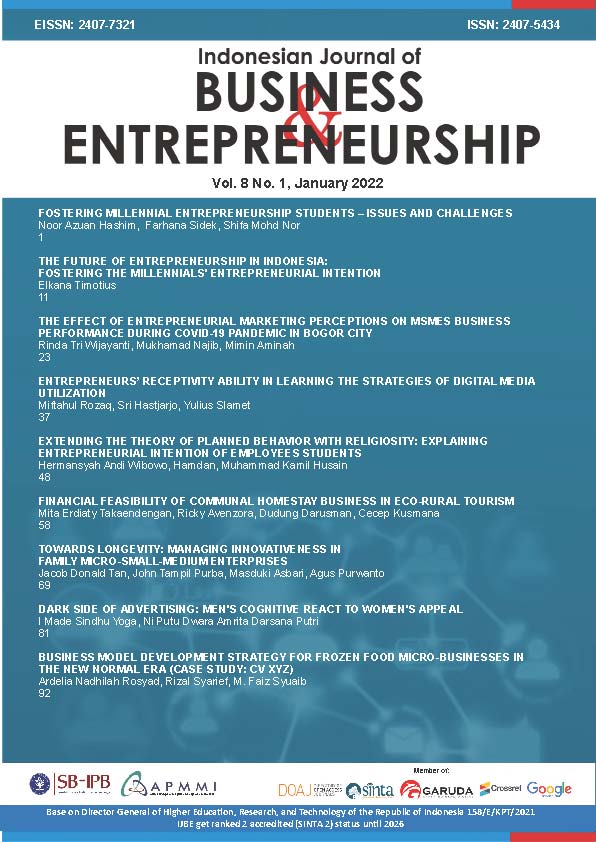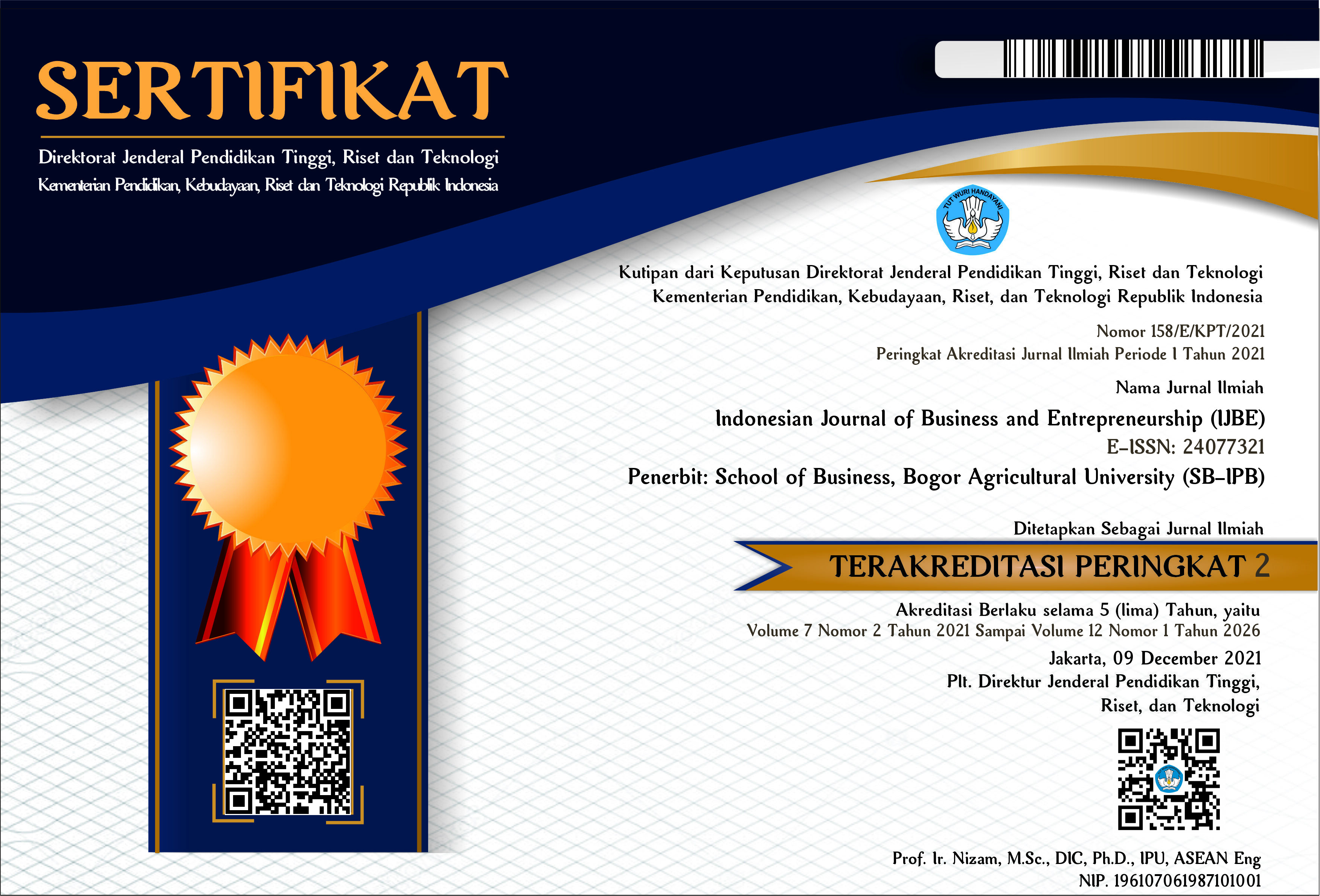The Dark Side of Advertising: Men's Cognitive React to Women's Appeal
Abstract
Previous studies have stated that the women's appeal has been proven effective in gaining recognition necessary to enhance the popularity. The local gadget store in Bali has proved that the strategy is adequate to gain the name and popularity for their business. However, the findings show that although it succeeds in gaining recognition from society, it does not directly affect the intention to buy. This research attempts to reveal the perception of men towards the women in advertisements and whether it will affect the intention to buy the product offered. The method used for this study was qualitative methodology in phenomenology approach (Creswell, 2013) and data were obtained through semi-structured interviews and indirect observation as the data will be analyzed using the Consumer Culture Theory (CCT) (Arnould & Thompson, 2005). The findings show that the ads do play roles in attracting people to visit the store yet there is an indication where eastern culture also plays a role in perceiving things. In conclusion, women's appeal does prove to be effective in luring people in, but it does not increase the intention to buy.
Keywords: advertisement, cognitive, consumer culture theory (cct), women's appeal








